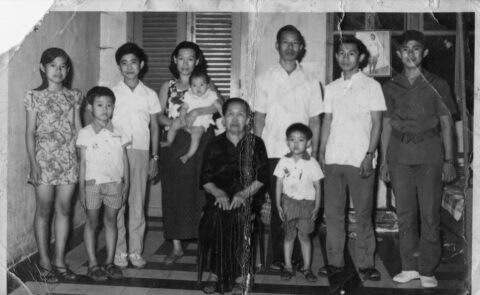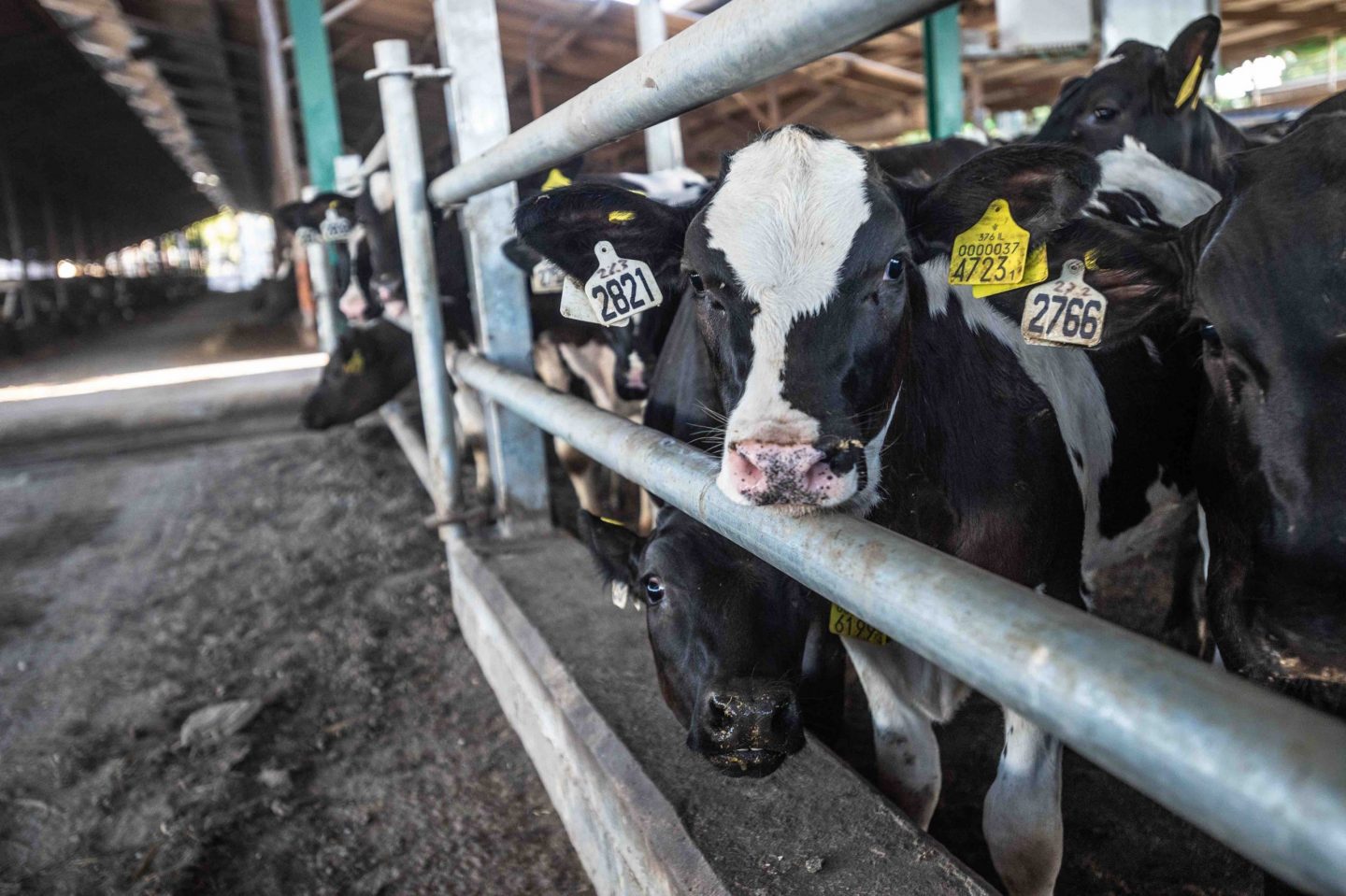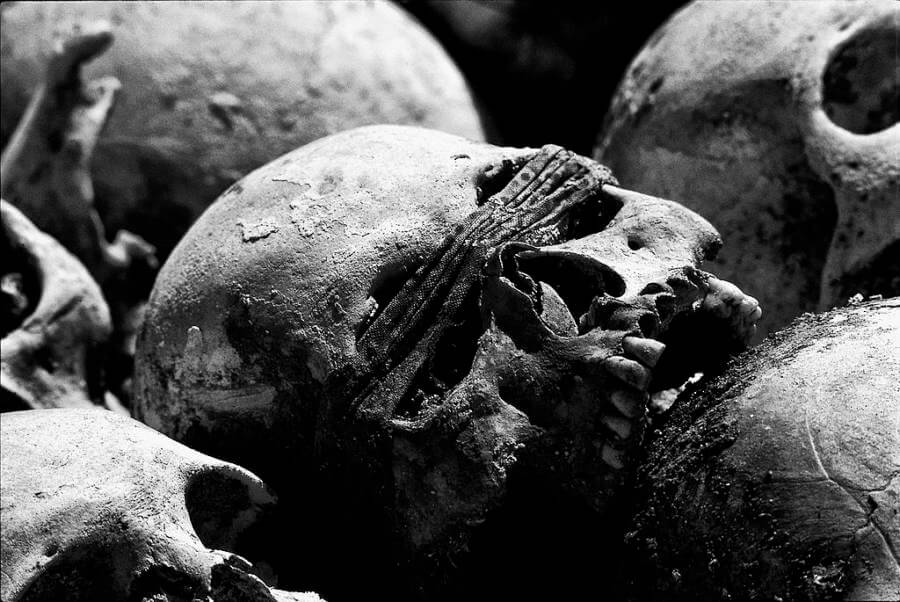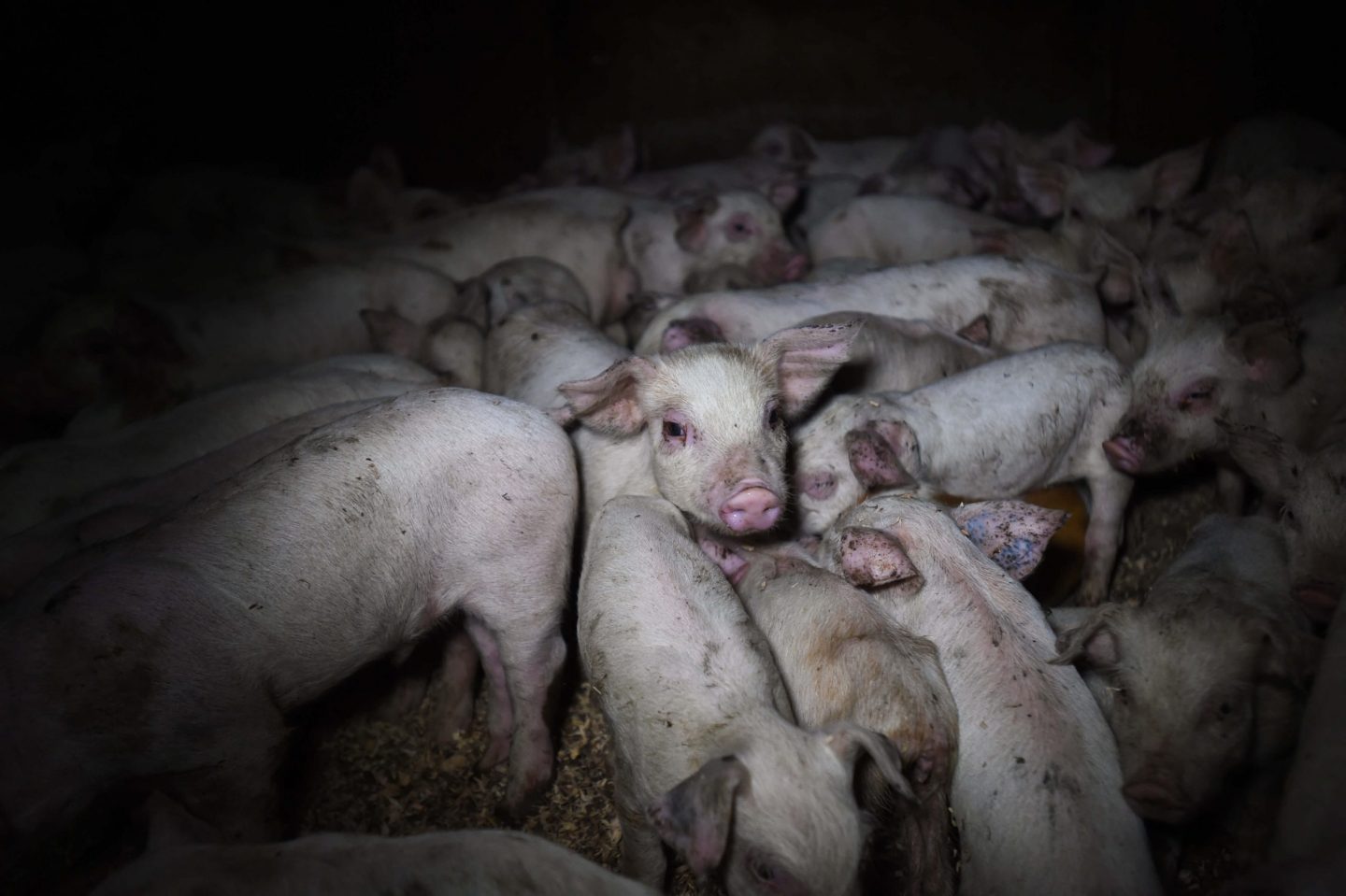Perspective
The Myth of the Cowboy and Its Enduring Influence on Public Policy
Meat Lobby•7 min read
Perspective
A second-generation Cambodian genocide survivor draws parallels between her mother’s experiences under the Khmer Rouge regime and the modern-day treatment of farmed animals.


Words by Malina Tran
Growing up, I didn’t hear the make-believe stories told to children my age. There were no princesses, unicorns, or happily-ever-afters. My mother Kimberly (whose birth name, Ly Kim, neatly translates to her American name) instead recounted raw tales of her life in the 1970s during the Khmer Rouge genocide. With the Cambodian New Year starting today, I am reminded of her stories during this otherwise festive period for Cambodian people. It was not until adulthood that I realized how many aspects of my mother’s nightmarish experiences closely resemble the lives of today’s industrially farmed animals.
My mother was just 16 years old when Cambodia’s tumultuous politics paved the way for one of the most horrific atrocities in modern history. In April of 1975, Communist dictator Pol Pot set in motion his radical agenda for “Year Zero,” envisioning an agrarian society ruled by the Khmer Rouge—a militant group intent on purging the country of minorities, artists, and intellectuals. Urban dwellers in Cambodia were forced en masse to the country’s rural areas, which would later be infamously known as the Killing Fields. What my mother and millions of Cambodians endured for the next four years was hellish, if not fatal. About one-fifth of the Cambodian population, or 1.7 million people, died by execution, torture, starvation, or disease.
My mother’s storytelling instilled in me a strong sense of empathy and a deep commitment to social justice. When I learned about the animal agriculture industry through documentaries like Earthlings and Dominion, I was shocked to realize that the stories of the genocide are the lived realities of trillions of land and marine animals today. The similarities between modern industrial farms and Cambodia under the Pol Pot regime are many and striking.
The Khmer Rouge used the tactic of separating families to disrupt traditional family roles and structures. Young children were defenseless against an indoctrination campaign that sought to turn them against their own parents. Soldiers divided families into separate labor camps. Kimberly found herself working in a brigade, isolated from her parents and siblings. Visitations and leisure time were prohibited. Profoundly missing her mom (my grandmother), Kimberly risked her life many times by running for hours through the pitch-black jungle to reunite with her mother for a night, only to run back in time for daybreak. The instinctive bond between mother and child is so strong that it compelled Kimberly to take life-threatening chances to be with her mother.

In the modern dairy industry, female cows are forcibly separated from their calves upon birth. (Separation ensures that the calves do not drink their mothers’ milk, which is “designated” for only human consumption.) Cows, like humans, have a strong maternal instinct. When her baby is taken, a mother cow is naturally distraught—she often attempts to chase after her missing baby, crying and frantically searching for the calf even weeks after being separated. Newborn calves are emotionally harmed, too, repeatedly crying and even refusing to eat after the separation. Forced separations are part of the cruel cycle of industrial dairy production, continuing as female calves become the next generation of milk-producing dairy cows.

The mass graves of the Killing Fields are evidence that the Khmer Rouge viewed certain lives as worthless. The regime’s mantra—“to keep you is no benefit, to destroy you is no loss”—embodied this belief. Because the prospect of dying represents every living creature’s most primal fear, the Khmer Rouge used death as a tool to control its people. Kimberly, after witnessing firsthand a close friend be taken away for execution after speaking out against the regime’s injustices, feared that her own death was imminent. She fell into a feverish spell; her body shook uncontrollably before becoming seriously ill. While Kimberly eventually recovered, she never again saw her friend. From that day forward, Kimberly remained silent in order to survive.
Facing a violent and untimely death is preordained for farmed animals from their first days of life. In the egg industry, male chicks—unprofitable because they cannot lay eggs and are unsuitable for meat production—are ground alive shortly after being hatched. Mature cows, chickens, and pigs are queued for slaughter via gas chambers, stun guns, or electrocution. During their last moments alive, they are forced to smell the blood, hear the shrills, and witness the deaths of their peers. These animals demonstrate clear aversions to suffering and fears of death through emotional and physical acts of resistance. They panic, convulse, cry, and scream. All sentient beings, regardless of species, seek to avoid pain and fear death.
The Khmer Rouge despised and exploited what they called the “new people”—Cambodia’s city-dwelling intelligentsia—by torturing, starving, and enslaving them. The “new people” were so devalued that they were sometimes bludgeoned to death to save bullets. Lacking access to medicine, many more died from curable diseases. My mother, tasked with transporting rocks uphill for road construction, was so overworked and malnourished that her body whittled down to its bones. Food was plentiful for the Khmer Rouge cadres, while the laboring masses, including Kimberly, subsisted on meager amounts of porridge. Unable to adequately feed herself, Kimberly became bedridden and was returned to her parents’ care. So certain was Kimberly’s death that neighbors—afraid that her spirit would haunt their homes—urged my grandparents to abandon her at a local clinic to die.

Factory-farmed animals are negligently abused throughout their lives. They are confined to inhumanely small quarters, face disease-ridden conditions, and are routinely deprived of proper nutrition and care. The weakest chicks and piglets are discarded into trash bins, suffocated, or crushed with clubs to save money on veterinary costs. Medical procedures and blatant mutilations are performed without any anesthetic pain relief: male piglets and calves are castrated, chickens’ beaks are severed with hot blades, ducks are forcefully overfed with metal pipes shoved down their throats. Factory farm workers are sometimes gratuitously abusive, dragging, beating, kicking, and terrorizing the animals under their “care.” (The recent incident at Fair Oaks Farms, in which workers were filmed violently abusing young calves, is far from being an isolated occurrence.) Farmed animals lead short, miserable lives; their suffering is relieved only by painful deaths.
Humans endure prejudice, violence, and denials of basic rights in the forms of racism, sexism, homophobia, classism, and other forms of discrimination. Farmed animals silently suffer in many of the same ways, and often worse. Their lives are systematically, and legally, unspared by their human oppressors. The path to creating a world that is fair and equitable for all includes rectifying the wrongs inflicted upon marginalized groups, human and nonhuman alike. Humans have a moral responsibility to care for society’s most vulnerable beings, animals included. While the motivations of Pol Pot’s regime and those of industrial farmers are profoundly different, oppression remains as a central unifying theme. As actor-activist Joaquin Phoenix so eloquently expressed this year in his Academy Awards speech, “Whether we’re talking about gender inequality or racism or queer rights or indigenous rights or animal rights, we’re talking about the fight against injustice.”
With the start of the Cambodian New Year, which conjures conflicting emotions for Cambodian people, I am drawn to reflect upon my mom’s quiet fighting spirit in the face of unthinkable adversity. Her will to survive mirrors that of the billions of farmed animals held in captivity and destined for slaughter. All living beings simply want to live without oppression and to experience the instinctive joy of being alive. There is no difference.